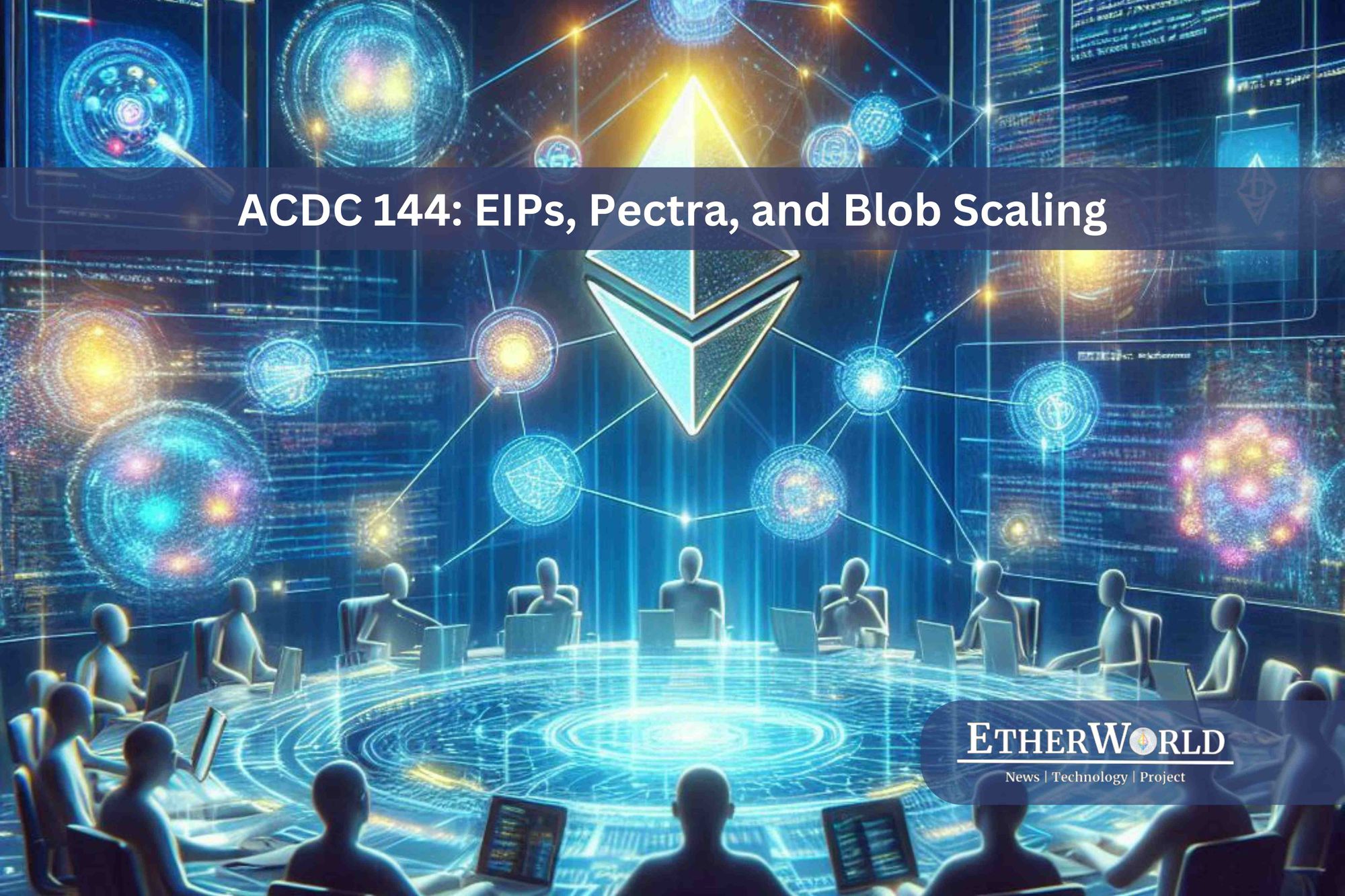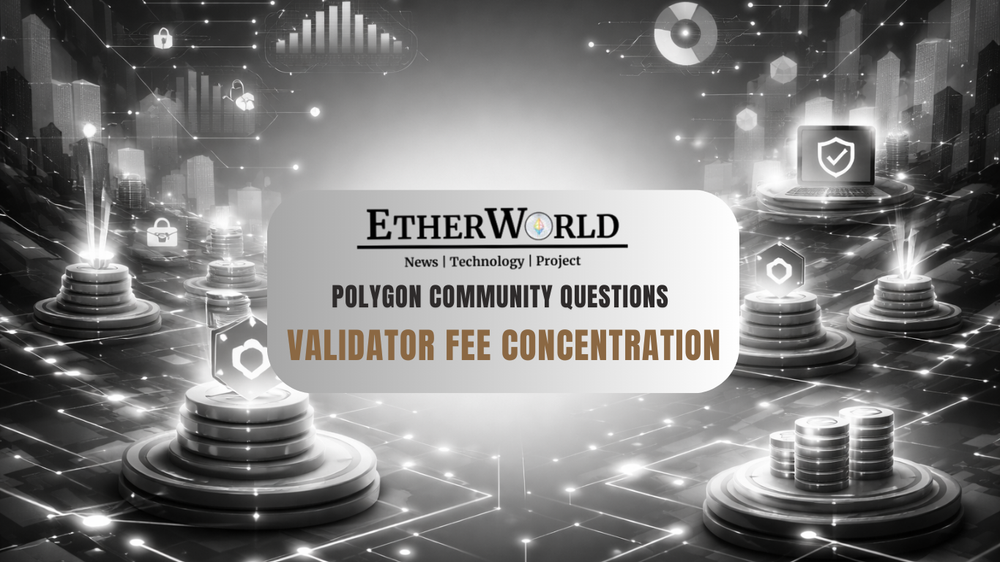Consensus-layer Call 144: EIPs, Pectra, and Blob Scaling
Ethereum developers discussed key updates on Pectra, EIPs 7742 and 7782, and strategies for scaling blobs, focusing on network performance, PeerDAS, and upcoming changes for the Pectra hard fork.

In the Ethereum Consensus Call #144 hosted by Alex Stokes on October 17, 2024, developers got together to talk about some key updates, especially around the upcoming Pectra hard fork and improvements to the network. Here’s a quick recap of what went down:
Pectra Devnet Updates
They kicked off by discussing the Electra devnets, which are essentially test environments to make sure everything works smoothly before changes hit the main Ethereum network. Devnet-3 is still being worked on, and they’re prepping for Devnet-4, which isn’t quite ready yet.
There was a big discussion around including something called SingleAttestation (from EIP-7549) in Pectra. This feature would help with how attestations (votes on the chain’s correctness) are handled, but it needs more review because it’s a pretty big change. Some devs felt it could bring better security, but others were worried it might not fully fix certain denial-of-service (DoS) problems, so they’ll take another look.
Then there was talk about a rate-limiting feature (PR 3767) for the peer-to-peer (P2P) system. Some devs were on board, but others thought it might be too late to add it to Pectra since it’s a big change, so they’re considering holding off until the next upgrade.
They also touched on an update (PR 104) for the builder APIs, which help validators (the people who help secure the network) propose blocks. There were questions about backward compatibility, but it seems the plan is to signal it via headers in the requests, so they’re leaning toward moving forward with it.
PeerDAS and Blob Scaling
This part of the conversation got technical. They were talking about "blobs", which are chunks of transaction data that are critical for scaling Ethereum’s Layer 2 (L2) solutions. PR 3864, which helps validators handle blobs more efficiently, is almost ready to be merged. Terence, said it made blob recovery faster and reduced network traffic, which is great news.
However, there was some confusion about why fewer blobs were showing up in the mempool (an area where pending transactions sit). It turned out that relayers (special nodes that broadcast blocks) were sending blobs too early, which skewed the numbers. They’ll need to work on fine-tuning this.
They also debated whether to increase the target number of blobs from three to five in the upcoming Pectra hard fork. More blobs would help scale Layer 2 solutions, but solo stakers (those running their own validator nodes) could face higher bandwidth demands. They decided to take a cautious approach, possibly increasing the blob count in stages to avoid overwhelming the network.
Research and Spec Updates
There was an update about EIP-2537, which deals with some technical details around APIs and how features are structured for better performance and security. Nothing final yet, but they’re continuing the conversation.
Giulio shared some interesting ideas around EIP-7783, which would introduce gradual gas limit increases instead of sudden jumps. This would help prevent network congestion without overwhelming validators. The proposal seemed to get a good response, with more discussions planned for the next meeting.
EIP-7782 came up briefly, focusing on gradually adjusting the gas limit instead of sudden increases to keep things smoother and avoid network congestion. There was some discussion about alternatives, like reducing the slot time from 12 to 8 seconds to increase the gas limit indirectly, but concerns were raised about the extra bandwidth and impact on finality research. Overall, it’s about making the network more scalable and efficient, but they’re being cautious about potential side effects before moving forward.
There was concern about the complexity of implementing EIP-7742 in time for the Pectra upgrade, with some suggesting the hard fork be delayed by a month or two. However, since EIP-7742 is essential for PeerDAS, many felt it should be committed now, with refinements addressed later. The team will revisit this in the next ACD call to check on progress.
Open Discussion
To wrap things up, Stokes suggested canceling the next Consensus Layer call in mid-November since it clashes with Devcon, Ethereum’s big developer conference. Everyone agreed to revisit this closer to the date.
Summary
In short, this call was all about making sure Ethereum’s upcoming Pectra upgrade is as smooth as possible. The devs are fine-tuning important features like attestations, blob scaling, and gas limits to ensure the network can handle more users and transactions without breaking a sweat. It’s all part of Ethereum’s bigger plan to scale while keeping things secure.
Disclaimer: The information contained in this website is for general informational purposes only. The content provided on this website, including articles, blog posts, opinions, and analysis related to blockchain technology and cryptocurrencies, is not intended as financial or investment advice. The website and its content should not be relied upon for making financial decisions. Read full disclaimer and privacy Policy.
For Press Releases, project updates and guest posts publishing with us, email to contact@etherworld.co.
Subscribe to EtherWorld YouTube channel for ELI5 content.
Share if you like the content. Donate at avarch.eth
You've something to share with the blockchain community, join us on Discord!




